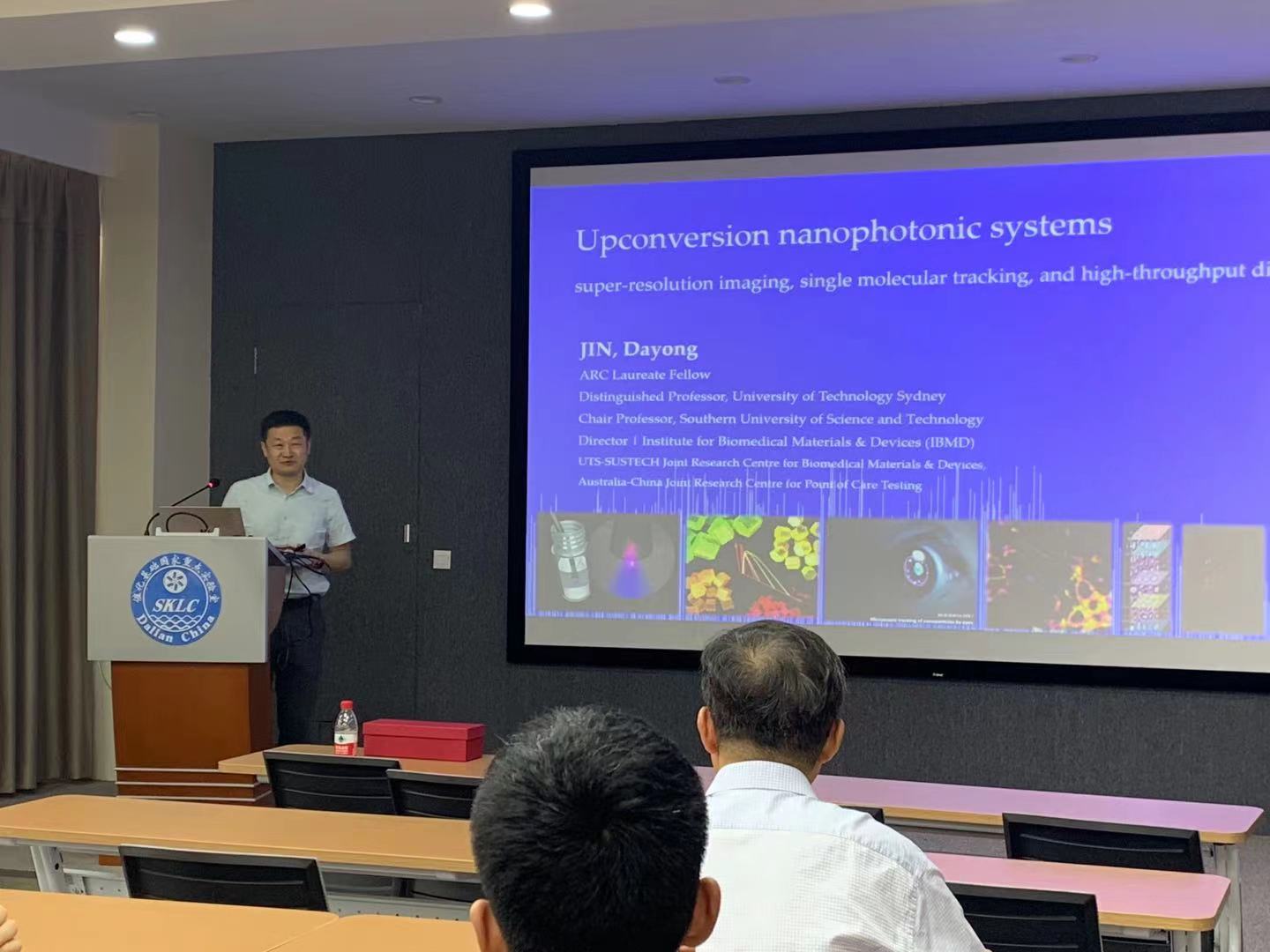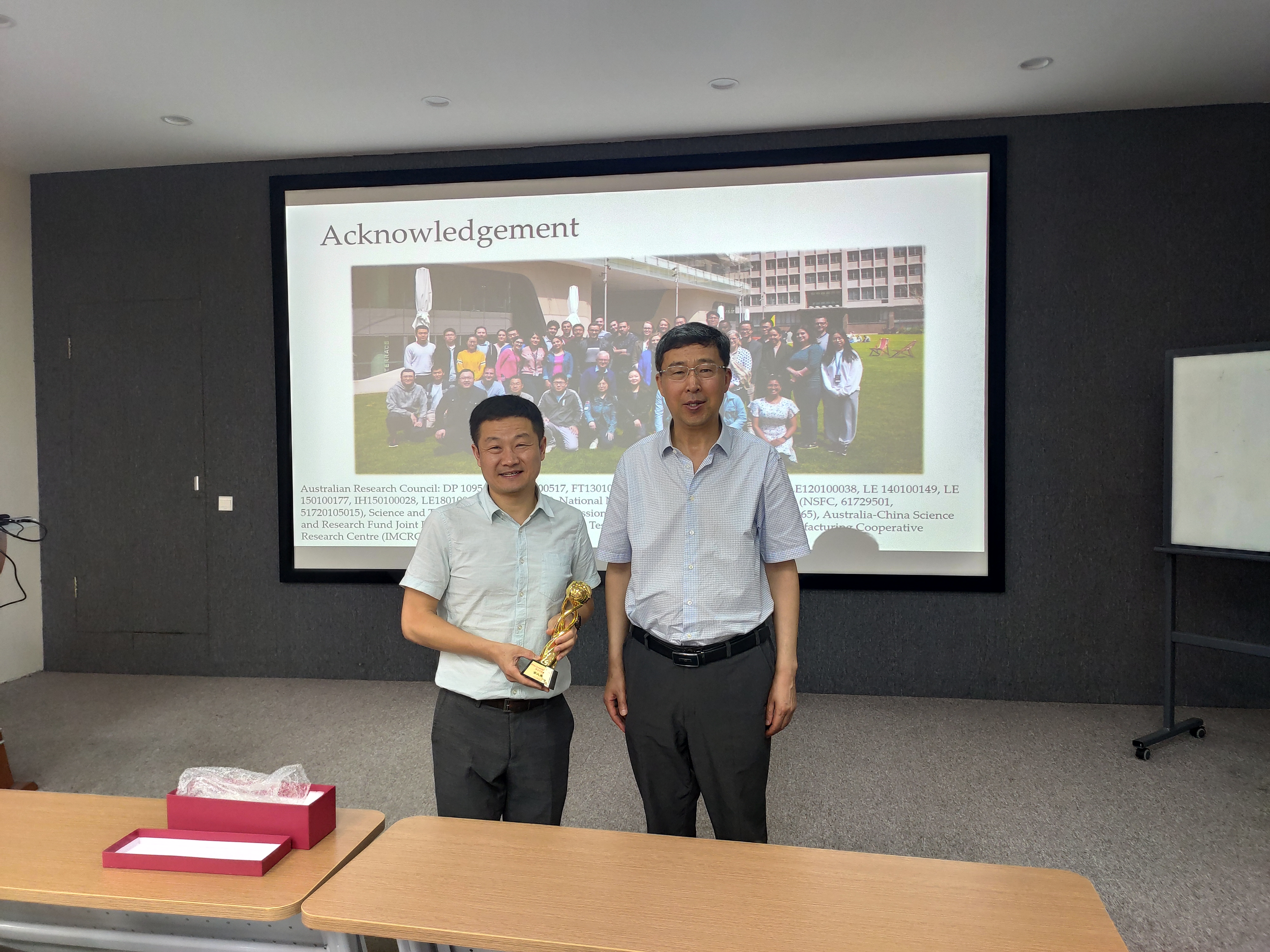On August 3th, 2021, Prof. Dayong Jin visited our group at DICP for academic exchanges. During his visit, he gave an impressively academic report entitled “Advances in Highly Doped Upconversion Nanoparticles” in the conference room on the third floor of the State Key Laboratory of Catalysis building. The academic report was chaired by Prof. Liu.
In his talk, he presented the recent new developments of super-resolution microscopy imaging and single molecule tracking techniques, including direct microscopic inspection and tracking of single upconversion nanoparticles in living cells, multi-photon near-infrared emission saturation nanoscopy using single beam scanning, Bessel beam scanning to mapsingle nanoparticles inside tumor spheroids, nonlinear structured illumination microscopy, Fourier domain heterochromatic fusion for single beam scanning super-resolution microscopy, axial localization and tracking of self-interference nanoparticles by lateral point spread functions, and recently optical tweezers. At the end of forum, a certificate for the Youth Innovation Promotion Association of DICP was issued to Prof. Dayong Jin.


Dayong Jin is a Distinguished Professor at the University of Technology Sydney since 2017 and a Chair Professor at Southern University of Science and Technology since 2019. Prof Jin obtained his PhD from Macquarie University in 2007. At Macquarie, he was promoted to Lecturer in 2010, Senior Lecturer in 2013, and Associate Professor in 2014. At UTS, as the director, he established the Australian Research Council Industry Transformation Research Hub for Integrated Devices for End-user Analysis at Low Levels (ARC IDEAL Research Hub), the Department of Industry, Science, Energy and Resources’ Australia-China Joint Research Centre for Point of Care Testing (DISER POCT), the UTSSUStech Joint Research Centre for Biomedical Materials & Devices, which three major programs underpin the UTS Institute for Biomedical Materials & Devices (IBMD), to transformadvances in phonics and materials into disruptive biotechnologies. His research has been in the physical, engineering and interdisciplinary sciences, with expertise covering biomedical optics, nanotechnology, microscopy, diagnostics and microfluidics devices.
Prof Jin is the winner of the Australian Museum Eureka Prize for Interdisciplinary Scientific Research in 2015, the Australian Academy of Science John Booker Medalist in 2017, and the Prime Minister’s Malcolm McIntosh Prize for Physical Scientist of the Year 2017. He received the Australian Research Council Laureate Fellowship in the year of 2021.